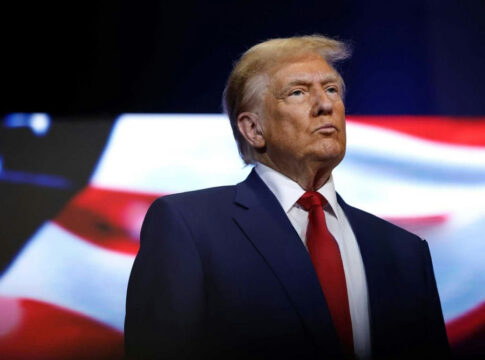President Trump’s new warning to foreign governments—backed by threats of tariffs—spotlights a fierce battle to defend American tech companies and free speech from global overreach.
Trump’s Warning: Tariffs as a Shield for American Tech and Free Speech
On August 25, 2025, President Donald Trump issued a direct warning to foreign governments via Truth Social, making it clear that any legislation undermining or discriminating against American technology companies would be met with strong economic retaliation. Trump specifically promised to impose tariffs on countries that enact hostile tech regulations, casting the issue as both a matter of free speech and national sovereignty. This message aims to protect U.S. customers and counters what the administration sees as foreign encroachment on American values and business interests.
Trump’s warning comes amid a global climate where the European Union and other governments have enacted or proposed digital laws—such as the EU’s Digital Services Act—that increase content moderation and data privacy requirements for tech platforms like Meta, Google, and X. These foreign regulations are viewed by Trump and his supporters as veiled attempts to restrict American companies and impose foreign values on U.S. businesses. By linking tariffs to tech regulation, Trump is leveraging economic tools to defend not only market access but the principle of free speech, a cornerstone of conservative and constitutional values.
Free Speech, Tech Regulation, and the Constitutional Stakes
For Trump’s conservative base, the fight over tech regulation is about far more than economics. The debate touches on core American principles—free speech, limited government, and national sovereignty. Section 230 of the Communications Decency Act has historically protected tech platforms from liability for user content, enabling robust debates online. However, global pressure to combat misinformation and hate speech has led to regulatory initiatives that, critics argue, risk silencing voices and promoting leftist censorship agendas. Trump’s stance rallies conservatives who see these foreign laws as an extension of the “woke” movement and globalist pressures that have undermined American liberty and traditional values.
The administration’s warning also highlights ongoing concerns about executive overreach. Legal experts and civil liberties organizations, such as the ACLU and FIRE, have cautioned that punitive tariffs or threats to funding can have a chilling effect on lawful speech and academic freedom. There is debate over the true extent of presidential power to impose such measures unilaterally, with constitutional and statutory checks in place. Nonetheless, Trump’s strategy is clear: use every available tool to stand up to foreign governments and safeguard American platforms from ideologically driven regulation.
Broader Implications: Trade Tensions, Global Sovereignty, and Conservative Values
Trump’s hardline approach has immediate and long-term implications. In the short term, it raises the specter of renewed trade disputes with the EU and other nations, as American tech giants face increased compliance costs and market uncertainty. The threat of tariffs may deter some foreign regulatory efforts but could also provoke retaliatory measures, deepening divisions over digital policy. Economically, these disputes could disrupt digital trade and increase costs for businesses and consumers alike. Politically, the episode reinforces the polarization between advocates for robust free speech protections and those pushing for greater moderation and oversight of online content.
In the bigger picture, this conflict represents a broader struggle over national sovereignty in the digital age. As foreign governments seek greater control over the digital space, Trump’s administration positions itself as a bulwark against outside interference and a defender of the U.S. Constitution. For conservative readers, the warning is not just about tech companies but about resisting globalist agendas and preserving the freedoms embedded in America’s founding documents. The debate over how far executive power should go in this fight remains active, but Trump’s message is unmistakable: America will not stand by while foreign laws erode the values that define its identity.
While supporters see Trump’s warning as a necessary stand for American interests and constitutional principles, critics worry about the risks of escalation and the precedent set by using economic threats in response to regulatory disagreements. The coming months will reveal whether foreign governments back down or double down—and whether America’s resolve to defend free speech and sovereignty can withstand global pressures.
Sources:
Trump’s Threats Against ABC and NBC Raise New Fears About Media Crackdowns – TIME
Trump fired BLS’s Erika McEntarfer over job numbers. Here’s what that means. – Poynter

